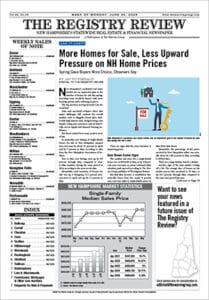Collaboration on solutions to homelessness in New Hampshire began anew Friday with the first meeting of a council tasked with addressing broad issues around housing affordability and stability.
Gov. Chris Sununu created the Council on Housing Stability last month after state police cleared a homeless encampment outside a courthouse in Manchester. It represents a revamping of the existing Interagency Council on Homelessness and has been instructed to update the state’s homelessness plan.
A preliminary plan is due Dec. 14 and could include recommendations for executive orders and legislation.
“As the governor recently mentioned in a letter to New Hampshire’s mayors, housing is not an optional lifestyle commodity but rather is an irreplaceable requirement for any form of humane human condition, and housing stability is a key social determinate of health. It is essential for all children, adults and families to thrive in New Hampshire,” said D.J. Bettencourt, the governor’s policy director.
“We appreciate that the timeline we’re operating under is tight, but it is imperative that we move quickly with short term, medium term and long term action items,” Bettencourt said.
The council’s more than 30 members include the heads of many state agencies; mayors; and representatives of groups such as the New Hampshire Coalition Against Domestic and Sexual Violence, the New Hampshire Catholic Charities, housing, landlord and builder’s associations, law enforcement, and people who have currently or recently had experience with housing instability.
Dean Christon, director of the New Hampshire Housing Finance Authority, provided an overview of the current housing market.
The median sale price for single family homes, which make up two-thirds of the state’s housing stock, has gone up 17 percent in the past year to $334,000, while the supply of homes has decreased, particularly at lower prices. That means more people remain renters, which further increases competition for limited units, he said.
The median monthly rent for a two-bedroom apartment has increased by 22 percent in the past five years, double the rate at which renters’ income has increased. And while the national average vacancy rate is 6 percent, in New Hampshire it is under 2 percent.
“There has been some increased production of rental housing, particularly in the southern part of the state … but that new rental housing is mostly targeted to the higher end of the market,” he said. “To the degree we’re focused on the needs of lower income individuals, there’s limited value to that recent supply increase.”
Taylor Caswell, commissioner of the Department of Business and Economic Affairs, said housing stability is a key part of the holistic approach his agency takes toward improving the state’s economy.
“We all do well when we all do well,” he said. “And that is true whether you’re talking about housing, whether you’re talking about individual circumstances or whether you’re talking about a statewide economy.”


